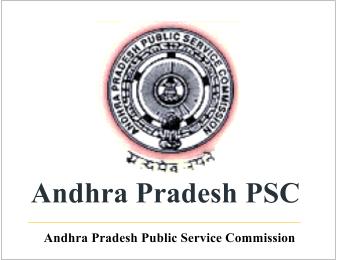AP PSC Syllabus : Group - II Services

AP PSC Syllabus : Group - II Services
GROUP-II SERVICES (WRITTEN EXAMINATION - OBJECTIVE TYPE) (BACHELOR’S DEGREE STANDARD)
SCHEME OF EXAMINATION
|
|
Duration (Minutes) |
Maximum Marks |
Minimum qualifying marks |
||
|
SC/ST/PH |
B.Cs |
Others |
|||
|
1 |
2 |
3 |
4 |
5 |
6 |
|
Paper-I: GENERAL STUDIES |
150 |
150 |
|
|
|
|
Paper-II: Section-1: Social and Cultural History of Andhra Pradesh (the History of various Social and Cultural movements in Andhra Pradesh) Section-2: General overview of the Indian Constitution. |
150 |
150 |
|
|
|
|
Paper-III: Section-1: Planning in India and Indian Economy; Section-2: Contemporary problems and Developments in Rural Society with special reference to Andhra Pradesh |
150 |
150 |
|||
|
TOTAL: |
450 |
135 |
157.5 |
180 |
|
|
INTERVIEW |
|
50 |
|
|
|
|
GRAND TOTAL (for Executive posts): |
|
500 |
150 |
175 |
200 |
Other Important Points:
1.The candidates who apply for posts identified as of Executive nature will be called for an Interview at the ratio of 1:2 with reference to the number of vacancies duly following the special representation as laid down in General Rule-22 and 22-A of A.P. State and Subordinate Service Rules including Local reservations, and also with due regard to the special/technical qualifications if any. The selections to these posts will be based on the total marks obtained by the candidates at the Written examination and Oral Test taken together subject to the rule of reservation and local reservation etc.
2.The candidates belonging to SCs/STs/BCs/PHs may be called for Interview by relaxing the minimum qualifying marks at the discretion of the Commission, if the Commission is of the opinion that sufficient number of candidates from these communities are not likely to come up for Interview.
3. For the posts which are identified as non-executive posts, the selection will be made on the basis of written marks only.
4.There will no waiting list, if candidates are not available, such vacancies will be carried forward as per rules.
5.Candidates must appear for all the three papers in written examination and Oral Test, if qualified for the same. Absent in any of the above will be liable for disqualification.
SYLLABUS
PAPER-I
GENERAL STUDIES
General Science
Current Events of National and International Importance.
History of India and Indian National Movement. India and World Geography.
General Mental Ability.
Questions on General Science will cover General appreciation and understanding of science including matters of every day observation and experience, as may be expected of a well educated person who has not made a special study of any particular scientific discipline. In current events, knowledge of significant national and international events will be tested. In History of India, emphasis will be on broad general understanding of the subject in its social, economic and political aspects. Questions on Indian National Movement will relate to the nature and character of the nineteenth century resurgence, growth of Nationalism and attainment of independence. In geography emphasis will be on
geography of India. Questions on geography of India will relate to physical, social and economic geography of the country, including the main features of the Indian agricultural and natural resources. On general mental ability, the candidates will be tested on reasoning and analytical abilities.
PAPER-II
SECTION-1: SOCIAL AND CULTURAL HISTORY OF ANDHRA PRADESH
1. The Satavahanas and their contribution – social structure – Ikshvakus and their cultural contribution; Buddhism and Jainism; The Eastern Chalukyas of Vengi – their socio-cultural contribution – growth of Telugu language & Literature.
2. Socio- Cultural and Religious conditions in Andhra Desha between first and fifteenth centuries of the Christian Era.
3. Establishment of British Rule – 1857 Revolt and its impact on Andhra and Hyderabad Socio-cultural awakening ; Adi-Andhra/Dalit and Justice/self – respect movements; Growth of Nationalist Movement in Andhra between 1885 and 1947 – Role of socialists – communists – anti-zamindari-kisan movements.
4. Asafjahi Dynasty – socio-cultural awakening in Telangana -Adi-Hindu Movement – Nizam Rashtra Janasangham – Andhra Mahasabha – Andhra Saaraswata Parishat – Hyderabad State Congress and Vandemataram Movement.
5. Growth of Leftist / Communist Movement and Telangana People’s Armed Struggle – Ittehadul-Muslimeen – Razakars-anti-Nizam Struggles and end of Nizam’s Rule.Integration of Hyderabad State into Indian Union – Formation of Andhra Pradesh – Important historical events after 1956.
SECTION-2: GENERAL OVERVIEW OF THE INDIAN CONSTITUTION
1) Salient features of the Indian Constitution – Preamble, Fundamental Duties, Fundamental Rights, Directive Principles of State Policy and their relationship.
2) Distinctive features of Indian Federation - Distribution of Legislative Powers between the Union and the State; Relative roles of Legislature, Executive and Judiciary.
3) Community development experiment – 3 tier model of Panchayat Raj – 73rd and 74th amendments and their implementation.
4) Welfare Mechanism in India: Provisions for Scheduled Castes, Tribes and Minorities; Reservations for SC, ST and Backward Classes; Prevention of SC and ST Atrocities Act; National and State SC and ST Commission; Women’s Commission; National and States Minorities Commission and Human Rights Commission.
5) Unicameral and Bicameral Legislatures – Functions and crises of accountability, decline of legislature.
Click Here to Download
<< Go Back to Main Page
Courtesy: AP-PSC

